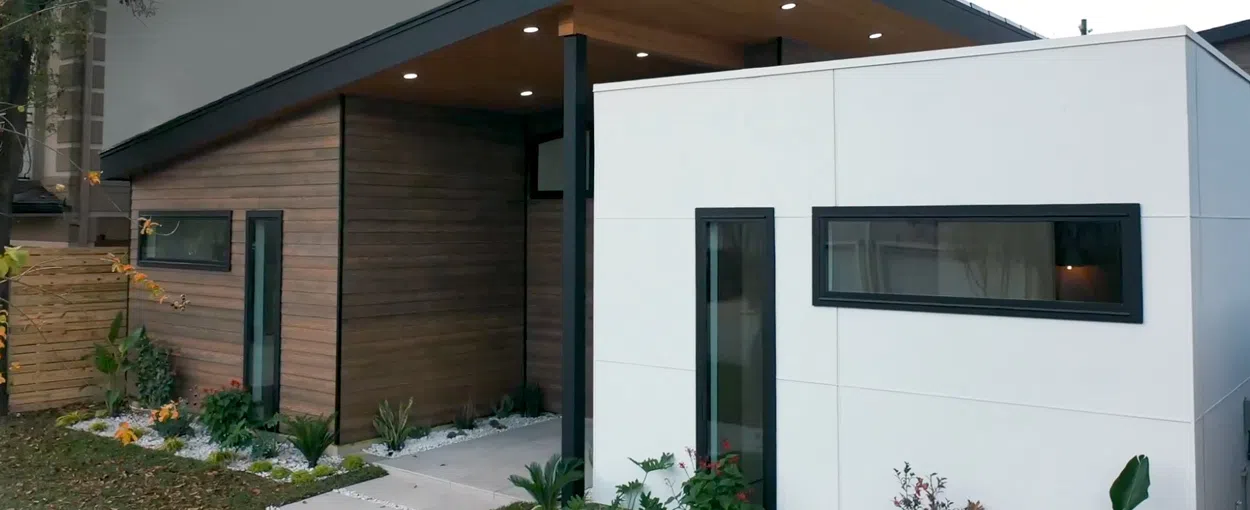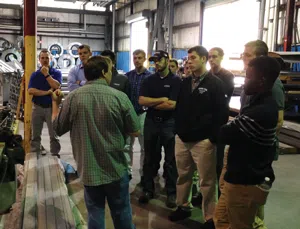As neighborhoods are redeveloped throughout the Jersey Shore, lower-income households are finding it increasingly difficult to find affordable — and comfortable — housing. Residents in Eatontown, N.J. were no different. When the Affordable Housing Alliance — a nonprofit community housing development organization — purchased land that had older manufactured homes already on it, it committed to building new models that were both reasonably priced and had higher-quality living conditions.
The Alliance knew that utility costs were a large part of what made older manufactured homes expensive for residents. At times, residents were paying approximately $400 to $500 per month in utilities, especially when oil and propane costs were on the rise. Plus, the lack of insulation meant the homes were wasting vast amounts of energy in order to maintain a comfortable temperature. Because of this, the new models needed to be well-insulated and have energy-efficient and cost-effective equipment.
After receiving funding from the Department of Energy’s Building America Program, The Levy Partnership began coordinating the development of new manufactured homes for the Alliance, including one Net Zero Energy home. While each of the manufactured homes were built by Champion Homes with the goal of reducing energy use, the goal of the Net Zero Energy home was to reduce annual energy bills to zero (0).
To achieve this, the home needed solar panels, which produce sustainable energy, and equipment that is energy-efficient. In choosing a heating and air conditioning solution for the Net Zero Energy home, The Levy Partnership selected Panasonic’s ductless solution, which was able to be installed at Champion Homes’ manufacturing facility. This means the unit was ready to use once the home arrived on-site, saving on installation cost.
“Our team wanted more than a vendor when we were selecting a heating and air conditioning solution for this project. We wanted a partner who would collaborate with us to deliver the right solution for Eatontown residents’ energy and comfort needs,” said Jordan Dentz, vice president of the Levy Partnership. “Panasonic’s team provided the technical guidance we needed, plus they have the low-wattage and quiet products to back them up.”
Next Step, a nonprofit network that promotes sustainable home ownership through factory-built homes, brought the Alliance and Champion Homes together for this project. While Champion Homes, which is another Levy Partnership collaborator, built the home, Panasonic’s ductless solution was installed in the factory. Because the system does not require any ductwork or floor area, it helped maximize space for residents.
Utility bills in the Net Zero Energy manufactured home are now a fraction of what they were in older units: they dropped from approximately $400 to $500 per month to only about $10 to $20 per month for gas and an average of about $30 per month for electric. As a result, the Alliance achieved one of its primary goals for the project — lower total cost of homeownership for residents.
Challenge
For lower-income residents in Eatontown, N.J., affordable housing has been increasingly difficult to find due to gentrification in the area. When the Affordable Housing Alliance purchased a manufactured housing park behind the Monmouth Mall in Eatontown, it was faced with the challenge of improving the living conditions for residents in the park without increasing their living costs.
At the time of the purchase, utility bills for units in the park were in excess of the cost of rent. With this in mind, the Affordable Housing Alliance made it their goal to reduce the cost of utilities in newer units to encourage residents to upgrade to better housing.
Solution
To develop the newer units, along with one Net Zero Energy unit, the Affordable Housing Alliance turned to The Levy Partnership, a building and energy consulting firm focused on developing and demonstrating energy efficient technology.
The Levy Partnership brought with it several partners who contributed to different aspects of the homes, including Next Step Network and Champion Homes. When it came to heating and air conditioning for these new manufactured homes, The Levy Partnership chose Panasonic due to its heating and cooling performance and efficiency. The Panasonic system provides primary heating and cooling to meet year-round comfort and utility efficiency for its occupants.
Result
By installing Panasonic’s ductless systems, energy consumption decreased to approximately half of what it would have otherwise been. Because the Affordable Housing Alliance met its goals to increase energy-efficiency and reduce costs for residents, Panasonic’s technology is a viable solution for future new construction and renovation projects in low-income neighborhoods.
Additionally, because Panasonic’s heating and air conditioning solutions can be installed at the facility where the manufactured homes are produced, it is also a viable solution for other manufactured housing projects.




